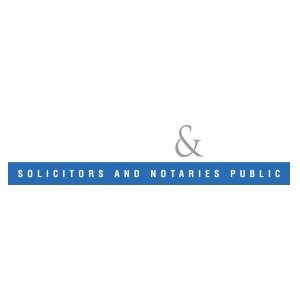
Best Sexual Harassment Lawyers in Glasgow
Share your needs with us, get contacted by law firms.
Free. Takes 2 min.
List of the best lawyers in Glasgow, United Kingdom


Latta & Co Solicitors

Raeside Chisholm Solicitors Limited
About Sexual Harassment Law in Glasgow, United Kingdom:
In the United Kingdom, including Glasgow, sexual harassment is regulated under the Equality Act 2010. This law defines sexual harassment as any unwanted behavior of a sexual nature which violates a person's dignity or creates an intimidating, hostile, degrading, humiliating or offensive environment. This could be verbal, non-verbal, or physical harassment. Both males and females can be victims as well as perpetrators.
Why You May Need a Lawyer:
The legal complexities of sexual harassment cases necessitate the need for a specialized sexual harassment attorney. Legal advice may be required when experiencing harassment at work, from individuals in positions of power, or in cases where the victim is unsure of how to proceed. Lawyers can help victims understand their rights, gather evidence, proceed with legal action, and possibly win compensation for emotional distress, legal costs, and more.
Local Laws Overview:
Apart from the Equality Act 2010, Scotland has its own specific sexual harassment laws enforced by Police Scotland and the Scottish Courts. In Glasgow, like the rest of Scotland, such conduct can be categorized under both criminal and civil law, including offences like "Sexual Offences (Scotland) Act 2009" and “Protection from Harassment Act 1997”. Victims can seek legal recourse through both criminal prosecution and civil lawsuits.
Frequently Asked Questions:
What constitutes sexual harassment in Glasgow?
Unwanted behaviors of a sexual nature that violate a person's dignity or create an offensive environment are considered sexual harassment. This can be verbal, non-verbal or physical.
How should one react when sexually harassed?
If safe, confront the harasser and try to secure witnesses or gather evidence. Report the incident as soon as possible to the relevant authorities or your employer if it happened at work. It's usually advisable to consult a lawyer.
What evidence is needed for a sexual harassment claim?
This may include witnesses, communications like emails or texts, and records of any reports made about the incident. An attorney will guide you on more specific pieces of evidence.
What to expect during a legal process regarding sexual harassment?
The legal process can involve reporting the offense, filing a formal complaint/lawsuit, gathering evidence, and potentially going to court. Having an attorney will make the process less strenuous.
Can one claim compensation for sexual harassment in Glasgow?
Yes, a victim can seek compensation via a civil lawsuit for emotional distress, loss of earnings, and in some cases, legal costs.
Additional Resources:
Organizations like Rape Crisis Scotland, Victim Support Scotland, and the Scottish Women's Rights Centre, provide support and resources for victims of sexual harassment. The Equality Advisory and Support Service (EASS) advises on issues relating to equality and human rights.
Next Steps:
If you've been a victim of sexual harassment in Glasgow, you should first ensure your safety and then consider documenting the incident. Reach out to a trusted individual for support and seek legal counsel. Reporting to the relevant authorities, like your workplace HR or local law enforcement, is usually the next step, though your attorney can guide you best based on your specific situation.
The information provided on this page is intended for informational purposes only and should not be construed as legal advice. While we strive to present accurate and up-to-date information, we cannot guarantee the accuracy, completeness, or currentness of the content. Laws and regulations can change frequently, and interpretations of the law can vary. Therefore, you should consult with qualified legal professionals for specific advice tailored to your situation. We disclaim all liability for actions you take or fail to take based on any content on this page. If you find any information to be incorrect or outdated, please contact us, and we will make efforts to rectify it.


